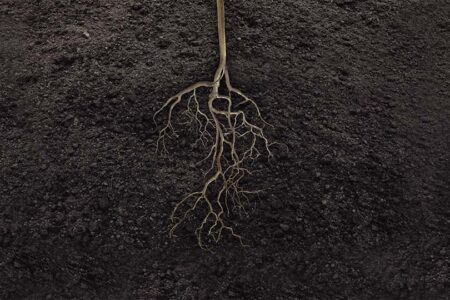Living for God
Nick Foles is an NFL quarterback. He became famous for leading the Philadelphia Eagles to their first-ever Super Bowl win in 2018 and was named the MVP for Super Bowl LII. The following year, he signed with the Jacksonville Jaguars for a reported $88 million.
Then something happened. In his first game with the Jaguars, Foles broke his collarbone. The injury could have devastated him. But Nick Foles is a devout Christian who applied the principles of the book of James. He evidenced humility, rather than hubris, and chose to glorify God through his adversity. In a video interview posted on Facebook, Foles had this to say:
At the end of the day, I said, “God, if this is the journey you want me to go on, I’m going to glorify you in every action, good or bad. And I still could have joy in an injury.” People hear that and say, “That’s crazy.” But it’s like, when you believe in Jesus and you go out there and you play, that changes your heart. . . . I’m in a better situation here as a person than I was before because of the trial I just went under. And I know that’s a sermon in itself, but that’s how I go through life. And the good Lord has been there. . . . It’s not always about prosperity. I don’t believe in the prosperity gospel. I believe if you read the Word of God and you understand it, there’s trials along the way; but they equip your heart to be who you are.
We all go through trials. God wants us to humble ourselves under His hand and submit to Him as He works in our lives. We are to cast our care on Him because He cares for us (1 Pet. 5:7). Rich or poor, we should be willing to be God’s servants, no matter what the circumstances.
Use Wealth Wisely
James 5 begins, “Come now, you rich, weep and howl for your miseries that are coming upon you! Your riches are corrupted, and your garments are moth-eaten” (vv. 1–2). History is replete with stories of wealthy people who lost everything—their jobs, businesses, homes, families, and so forth.
A writer once theorized an economy has three types of wealth to store up: crops, which can rot; garments, which can be ruined by age and moths; and gold and silver. Former Filipino First Lady Imelda Marcos once owned 3,000 pairs of shoes.
Americans spend nearly $38 billion a year in self-storage,1 stockpiling things they can’t squeeze into their homes. If we compare ourselves to Nick Foles, we may not feel wealthy. But if we compare ourselves to people in third-world countries—many of whom have no medicine, food, or shelter—Americans are wealthy indeed.
James warned against hoarding as a means of protection during trials: “Your gold and silver are corroded, and their corrosion will be a witness against you and will eat your flesh like fire. You have heaped up treasure in the last days” (v. 3). We all saw the hoarding that occurred during the pandemic. James would argue we should share our resources, not stockpile them.
God’s way requires those of us who have more to share with those who have less. Rather than focus on what we don’t have, we should focus on what we don’t need and how we can use it to help others. Doing so places us in the hand of God.
Be Fair and Generous
We also must never cheat people: “Indeed the wages of the laborers who mowed your fields, which you kept back by fraud, cry out” (v. 4). Some of the believers James wrote to were wealthy enough to employ workers, whose wages they controlled. We must pay fair wages—and pay them on time.
We also must pay our bills. As Christians, we should live within our means. Buying something and failing to pay for it falls into the same category as withholding wages. It is our responsibility to pay for products and services properly.
God knows when we cheat someone: “The cries of the reapers have reached the ears of the Lord of Sabaoth” (v. 4). He knows and will step in to correct the situation by way of judgment. We should live within our means and be both fair and generous. Jesus demonstrated God’s generosity in His parable about the landowner and workers (Mt. 20:1–16). The landowner paid the same wages to those he hired early in the day and those he hired late. When a worker complained about his generosity, the landowner replied, “Is it not lawful for me to do what I wish with my own things? Or is your eye evil because I am good?” (v. 15).
Live Modestly
James told believers to beware of spending frivolously and accumulating more than they need simply because they could: “You have lived on the earth in pleasure and luxury; you have fattened your hearts as in a day of slaughter” (5:5). We are responsible for evaluating our purchases and use of goods so that we don’t waste what God has given us.
James’s imagery is of animals raised for slaughter. When a farmer raises a beef cow, pig, or other animal to be slaughtered, he fattens it up first to get the maximum amount of meat when the animal is killed. James said these people were living like such animals. That is a horrible picture of Christians, isn’t it? We should ask ourselves, Do I really need that item? How might I spend more judiciously?
It appears some Christians were being harmed by the luxurious lifestyles of others: “You have condemned, you have murdered the just [righteous]; he does not resist you” (v. 6). The righteous appear to be individuals having a hard time getting by. James basically said, “You harm these people. Live modestly. Care for those around you, and meet the needs of others, if you can.”
Practice Patience
James concluded this section by advising all Christians to practice patience: “Therefore be patient, brethren, until the coming of the Lord. See how the farmer waits for the precious fruit of the earth, waiting patiently for it” (v. 7). Patience is essential when going through trials. A farmer who goes out to view the fields he planted knows he must wait to see them mature. He must put in the hard work early, and then the little plants begin to grow.
“You also be patient,” James said. “Establish your hearts, for the coming of the Lord is at hand” (v. 8). Many commentators feel this verse refers to the Rapture of the church. In a sense, that is true. However, I think James also was talking about the end of the trial and how the Lord will resolve it.
A farmer harvests the produce of his field when the season is complete. We are to go through the trials, being patient in the midst of them, until God brings them to an end. God will bring an end to your trial. He will end your suffering. Meanwhile, we must remember that some of our greatest blessings come with patience.
Furthermore, “Do not grumble” (v. 9). In other words, stop complaining. Evidently, believers were complaining about one another; and James warned them, “The Judge is standing at the door” (v. 9). When we complain, we ultimately are complaining against God. It is He who has allowed our circumstances. Complaining brings judgment.
Count It All Joy
As James said at the beginning of his epistle, “Count it all joy when you fall into various trials” (1:2). That is the attitude we should develop. Isaiah, Jeremiah, and Elijah all had to wait on God’s timetable. Some waited in suffering. Jeremiah was cast down a cistern to die until Ebed-Melech rescued him (Jer. 38:7–13).
At some point, the Lord Jesus will step into your life and fix your situation. He knows where you are, and He will handle your circumstances for you. Things may turn out differently than you expected, but He will take care of you. Meanwhile, your endurance glorifies God. And glorifying God is our reason for living.
As Nick Foles said, life is not about what we have. Life is about the opportunities to glorify God by how we live. That is the thrust of the book of James. We are to serve God regardless of trials, live for Him whatever our circumstances, and focus on the maturity God brings into our lives. Then we can rest in His grace.
ENDNOTE
-
-
- Carla Fried, “$38 Billion Is Spent Yearly on Self-Storage,” thegazette.com, January 24, 2020 (tinyurl.com/yjw4ve24).
-









I believe you are taking stockpiling out of context in regards to the pandemic. This is about the wealthy and rich who store up as a lifestyle off the backs of other people. Their wealth will be burned up along with them in the lake of fire. Is that what you are insinuating? I hardly consider storing up a month or so of food and water during a pandemic and the so-called “Great Reset” that could leave many without food and water hoarding. Did Joseph with Egypt patiently go through the 7 years of famine (trial) with patience in the midst of it? No. He had Egypt store up 7 years of plenty (Above and beyond) for the 7 years of want. If you knew a hurricane was coming, would you not board up your windows and “hoard” to weather the coming storm? It’s called being prudent. Read the scriptures in context.